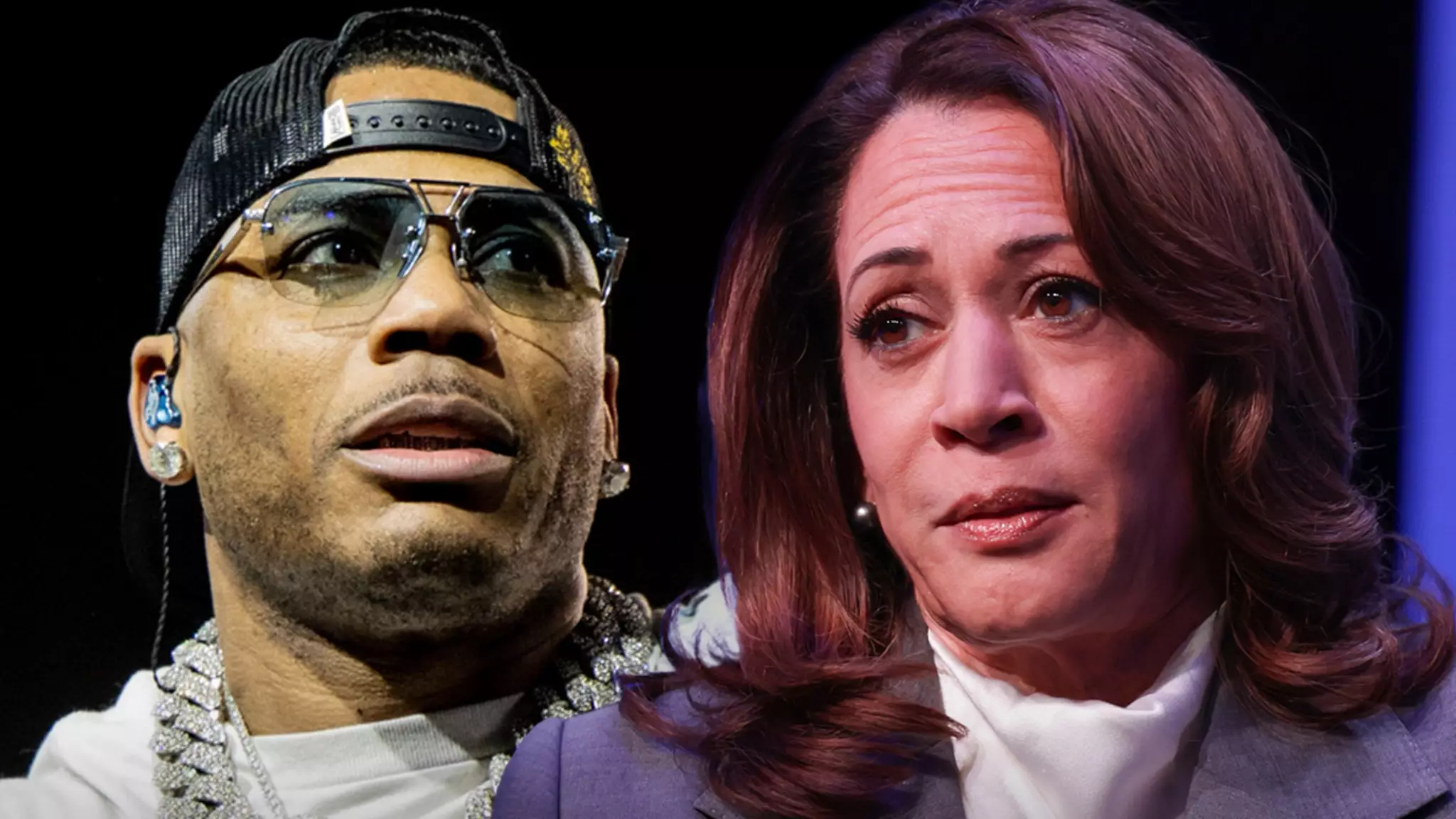Nelly, the hip-hop icon famously known for his early 2000s hits like “Country Grammar,” has recently stirred significant backlash, showing the complexity of aligning personal beliefs with public expectations—especially for African-American artists. After his performance at Donald Trump’s inauguration, he found himself branded a traitor by many fans and critics. The vitriol reveals a stubbornly narrow lens through which black allegiance to political figures is often judged. Yet, Nelly’s defense suggests a more complicated dynamic at work—one where traditional expectations of racial loyalty collide with individual perspectives on impact and contribution to the black community.
Defying Political Orthodoxy
Nelly’s vocal support for Donald Trump’s event, an unusual move within the predominantly Democratic African-American community, exposes a fracture rarely discussed openly. His position reveals a willingness to defy the political orthodoxy where black support is often taken for granted by the Democratic Party. By asserting he is “more pro-Black than their failed candidate,” Nelly provokes a crucial discussion about what it means to support black progress. Supporters typically equate political affiliation with racial allegiance, but Nelly unsettles this notion by emphasizing tangible impact, such as his long-standing financial support for Historically Black Colleges and Universities (HBCUs), a commitment also shared by Snoop Dogg despite similar criticisms.
The Kamala Harris Critique and Its Fallout
During a promotional stint for his reality show “We Belong Together,” Nelly did not shy away from challenging Vice President Kamala Harris’s authenticity in representing the black community, referring pointedly to her interracial marriage and criticizing the so-called sanctity of her political image. This commentary struck a nerve, bringing racial identity politics and intra-racial debates into the spotlight. It’s an unsettling discussion, but one that forces reconsideration of how black identity—and political representation—is framed. Nelly’s blunt language exposes frustrations that some African-Americans have with liberal politicians who are perceived as out of touch or disconnected from community realities.
The Unpacking of “Uncle Tom” Labels and Political Sanctimony
Nelly also bravely confronted the derogatory “Uncle Tom” labels frequently thrown at him and Snoop Dogg, framing these attacks as simplistic and counterproductive. Such name-calling often silences dissent within minority communities, stifling meaningful dialogue about political diversity and varied pathways to empowerment. His remark about not being “the Black prosecutor responsible for stamping countless Black men with a criminal record” is a provocative reminder that support within the black community should consider actions over appearances or party affiliation. This shift in focus challenges prevailing narratives, encouraging broader and more nuanced discussions on racial justice and political loyalty.
The Cost of Divergence and Public Perception
The personal toll of Nelly’s political choices cannot be ignored. He is navigating complex personal relationships and public expectations, notably seen in tensions involving his wife Ashanti and her family. While Ashanti herself is reportedly uncomfortable with some of Nelly’s stances, the financial gains from their teamwork cannot be dismissed, illustrating a pragmatic side to their collaboration. These tensions underscore how political expression intersects with family dynamics and economic realities, adding layers of complexity to Nelly’s public image.
Nelly’s experience highlights the risks involved when black public figures choose to step outside the accepted political script. His journey provokes an often avoided but necessary examination of intra-community politics, identity, and the multifaceted nature of activism and support. Whether one agrees or not, Nelly’s candidness demands engagement beyond conventional binaries and invites a reevaluation of what being “pro-Black” truly entails in contemporary America.

